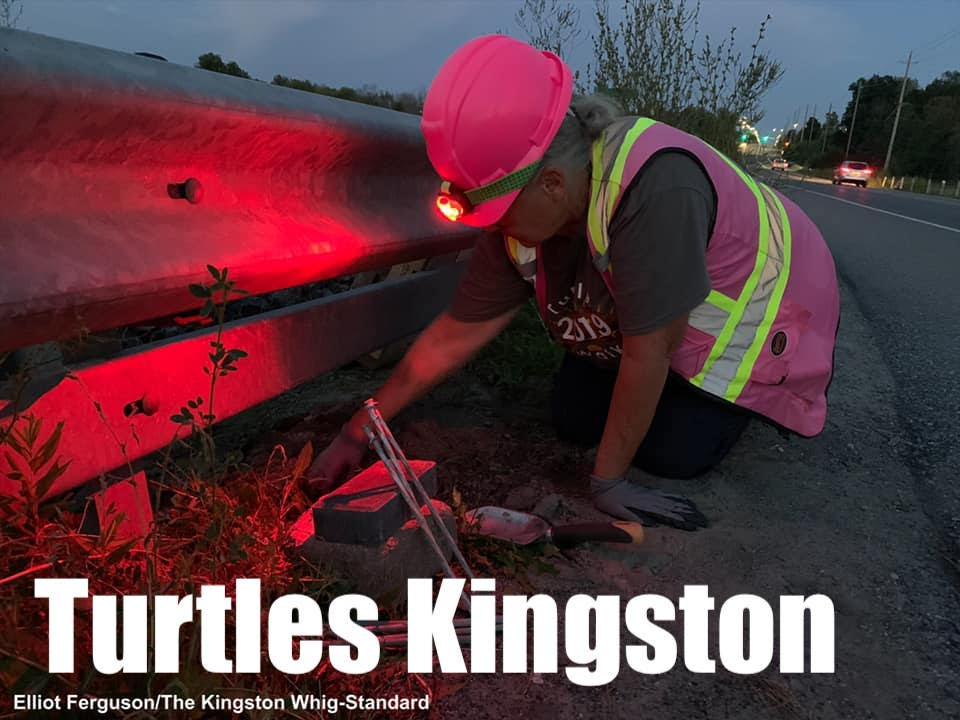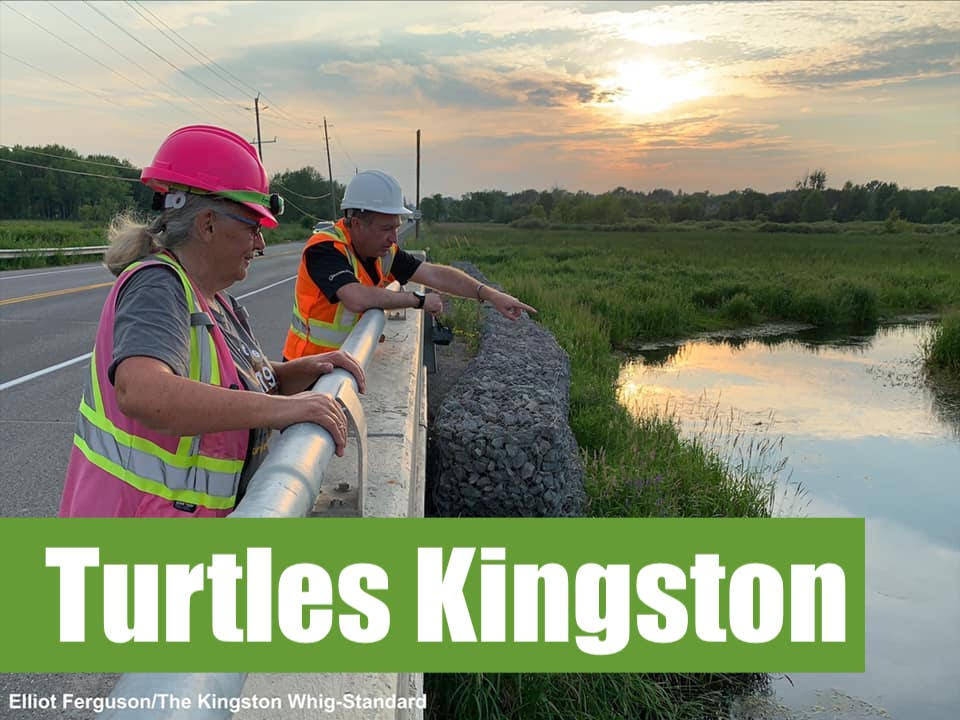Greta Du bois introduced today's speaker, Mabyn Armstrong. Greta just happened to be watching a program on turtles in Ontario, and was impressed with Mabyn's knowledge and enthusiasm for the subject. Greta got in touch and so Mabyn was here to speak to us. Mabyn moved to Kingston in 2014, and driving through the Westbrook wetlands she witnessed the deaths of turtles because of cars. She dedicated herself to helping stop this slaughter and re-launched Turtles Kingston in 2018 with a new Facebook page - https://www.facebook.com/TurtlesKingston

Mabyn's main points;
- There is a sole turtle hospital in North America, in Peterborough, although they want to expand.
- The goal is saving the world one turtle at a time.
- The Westbrook wetland is a major turtle hazard area.
- The goals of TK are mitigation of hazard (fences, alternate nesting sites, etc.), awareness, education, advocacy, and turtle trauma response
- Kingston's location in a huge wetland means turtle encounters are common (ask those working in Wendy's or Timmy's drive-thrus!)
- Snapping Turtles get a bad rap - they can't bite your finger off, they need to protect themselves because they have such a small lower shell. Snapping Turtles are the most common turtle to see on the road. A post busting the myths about snappers was seen by 102,000 people!
- There are 10 turtle species in Canada, 8 of those in Ontario, 5 of those in Kingston.
- The Blanding's Turtle is at risk in Ontario, the other 4 are of special concern. Only the Blanding's habitat is required to be protected.
- Ontario has lost 95% of its wetlands, contributing to water issues and climate change.
- Turtles are called the 'janitors of the wetlands', consuming large amounts of carrion and keeping bacteria in balance.
- Some wetlands are being reclaimed in Ontario.
- Turtles are the most endangered vertebrates on the planet, and have been on the planet between 220 and 300 million years.
- Speeds and passing needs to be restricted in the Westbrook wetlands. There is a huge amount of traffic. The area is now a posted no passing zone because of turtles.
- Kingston unanimously passed a mitigation motion in 2020 for the area. Temporary fencing was in place for this year's nesting season.
- There has been great cooperation from the road maintenance department in Kingston, changing their practices to protect turtles. This is also helping the pollinators. The same cooperation has come from the engineering department and from Utilities Kingston.
- TK was very involved in the Third Crossing consultation.
- Turtles are very difficult to relocate, they need their familiar nesting grounds.
- The turtle trauma program will enlist local veterinarians and Sandy Pines Wildlife Centre.
- The construction of nest protection boxes is an area Mabyn would like us to get involved in.
- Lastly, yes turtles do breathe through their butts ! :)
After several questions, Mabyn was thanked for her presentation by Bill Egnatoff


